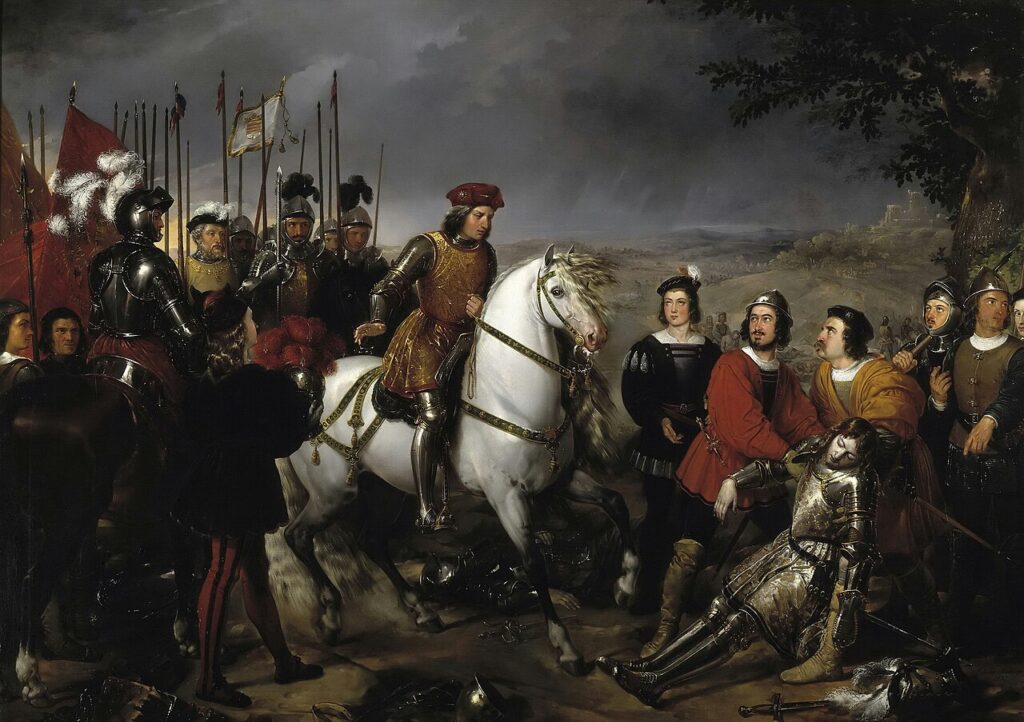France, one of the most influential nations in world history, has played a central role in shaping global politics, culture, philosophy, and revolutions. Its journey from ancient Celtic tribes to a modern democratic republic is rich with innovation, conflict, art, and transformation. Let’s explore the key periods and events that defined the history of France.

🏛️ 1. Prehistoric and Ancient France (Before 1st Century BCE)
Before France became “France,” it was inhabited by prehistoric humans, as evidenced by ancient cave paintings in Lascaux, dating back over 17,000 years. By 600 BCE, Greek and Roman traders had settled along the Mediterranean coast.
The region later became known as Gaul, inhabited by Celtic tribes. These tribes were known for their warrior culture and were organized into clans, often in conflict with each other.
🏹 2. Roman Gaul (1st Century BCE – 5th Century CE)
In 58–50 BCE, Julius Caesar conquered Gaul during the Gallic Wars, bringing the region under Roman control. The Romans introduced roads, aqueducts, cities, and Latin (which evolved into the French language).
Lugdunum (modern-day Lyon) became a major Roman city. Roman Gaul prospered for centuries until the collapse of the Roman Empire in the 5th century, which opened the door for invasions by Germanic tribes.
🛡️ 3. The Frankish Kingdom and the Merovingians (5th–8th Century)
After Rome fell, the Franks, a Germanic tribe, took over Gaul. In 481 CE, Clovis I became the first King of the Franks to unite most of modern-day France. He converted to Christianity, aligning his kingdom with the Roman Catholic Church.
The Merovingian dynasty ruled for nearly three centuries before giving way to the Carolingians.
👑 4. Charlemagne and the Carolingian Empire (8th–9th Century)
Charlemagne, or Charles the Great, became one of the most powerful rulers in European history. In 800 CE, he was crowned Holy Roman Emperor by the Pope.
His empire covered much of Western and Central Europe and sparked a revival of learning and culture known as the Carolingian Renaissance. After his death, the empire split into several kingdoms, one of which became France.
⚔️ 5. The Capetians and the Formation of France (10th–14th Century)
In 987, Hugh Capet became the King of France, founding the Capetian dynasty, which ruled for over 300 years. During this time, the French monarchy gradually gained strength, consolidating fragmented lands under royal authority.
By the 13th century, under kings like Philip II and Louis IX, France became the dominant power in Western Europe.
🔥 6. The Hundred Years’ War (1337–1453)
A series of conflicts between France and England, the Hundred Years’ War was fought over claims to the French throne.
Key moments include:
- The heroic rise of Joan of Arc, a teenage peasant girl who led the French army to important victories.
- The end of the war in 1453, with France regaining most of its territory.
This war helped forge a sense of French national identity.
🎨 7. The Renaissance and Religious Wars (15th–16th Century)
The French Renaissance, inspired by Italy, flourished during the reigns of Francis I and Henry II. The arts, architecture, and literature blossomed.

However, France was torn by violent religious conflicts between Catholics and Huguenots (French Protestants). These wars culminated in the St. Bartholomew’s Day Massacre (1572), where thousands of Protestants were killed.
☀️ 8. The Age of Absolutism and Louis XIV (17th–18th Century)
France became a centralized absolute monarchy under Louis XIV, the “Sun King.” He ruled for 72 years and built the Palace of Versailles as a symbol of royal power.
While his reign made France the most powerful nation in Europe, it also led to immense debt and unrest, setting the stage for revolution.
🔔 9. The French Revolution (1789–1799)
One of the most transformative events in world history, the French Revolution began with economic crisis, class inequality, and demands for democracy.
Key events:
- Storming of the Bastille on July 14, 1789
- Declaration of the Rights of Man and Citizen
- Execution of King Louis XVI and Marie Antoinette
- Reign of Terror under Robespierre
The revolution abolished the monarchy and radically restructured French society.
🏛️ 10. Napoleonic Era (1799–1815)
Napoleon Bonaparte rose to power and declared himself Emperor of France. He expanded the French Empire across Europe and implemented major reforms, including the Napoleonic Code, which influenced legal systems worldwide.
He was eventually defeated at Waterloo in 1815, leading to the restoration of the monarchy.
🏰 11. The 19th Century: Republics, Empires, and Industrialization
- The 19th century saw France swing between monarchies and republics.
- In 1848, the Second Republic was established.
- In 1852, Napoleon III declared the Second Empire, which ended after defeat in the Franco-Prussian War (1870).
- The Third Republic began and lasted until World War II.
France also experienced rapid industrialization, colonial expansion, and cultural innovation.
🌍 12. France in the World Wars (1914–1945)
- World War I devastated France, with millions dead and much of the northern countryside destroyed.
- In World War II, France was invaded by Nazi Germany in 1940.
- The Vichy Regime collaborated with the Nazis, but the Free French Forces, led by Charles de Gaulle, resisted and eventually helped liberate France in 1944.
🕊️ 13. Modern France: Fifth Republic and Beyond (1958–Present)
- In 1958, Charles de Gaulle founded the Fifth Republic, which remains today.
- France decolonized many countries in Africa and Asia, including Algeria after a brutal war.
- France became a founding member of the European Union, NATO, and the United Nations.
Today, France is a democratic republic, a nuclear power, and a global leader in culture, science, and diplomacy.
🏁 Conclusion
The history of France is a powerful story of transformation—from tribal societies to empires, monarchies to revolutions, and war to modern democracy. Its influence on the world in art, politics, philosophy, and human rights continues to this day.
France is not just a country; it is a civilizational force that has helped shape the world as we know it.
